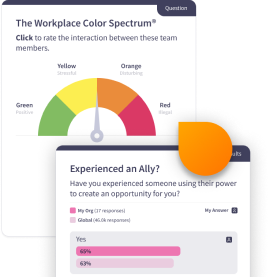
Essential FCPA Training
Course Video Preview
A couple discusses a foreign sales deal that must go through by any means necessary or result in a scale back of the company.Our comprehensive online training Course on Global Anti-bribery and Corruption is specifically designed to provide employees with a solid understanding of essential global anti-bribery and anti-corruption laws. This Course is suitable for employees in various departments such as marketing, sales, business development, finance, accounting, operations, as well as executives working for companies engaging in international business. Join us to enhance your knowledge in this critical area and ensure compliance in today's global business environment.
Course DescriptionThe Global Anti-Bribery and Corruption Training course teaches learners to identify and avoid bribes by explaining global bribery and corruption laws in a way everyone can understand. Learn how to identify which business transactions could potentially violate the Foreign Corrupt Practices Act (FCPA), the United Kingdom Bribery Act (UKBA) and corresponding legislation in China, Russia, Brazil, and India. We cover what "anything of value" is along with some of the most common bribery red flags. Interactive polling questions in the course give employers real insight into how employees feel about the concepts and culture skills presented. Emtrain’s innovative Ask the Expert feature gives learners direct access to course experts.
Key Concepts- What bribery is.
- What something “of value” is.
- Who government officials and state-owned enterprises are.
- What it means to obtain or retain business under bribery laws.
- The use of third parties.
- Books, records, and internal controls.
- Bribery red flags.
Course Features
- Access to our Anonymous Ask the Expert tool
- Rich video scenarios based on real-world events
- Built-in employee sentiment surveys
- 50+ Machine Translation Options
- Optional program timer
- Policy acknowledgement tool
- Extensive customization options

Lessons
Bribery and It's Impact on Society
Anything of Value
Inducement to Act
Government Officials
Third-Party Agents and Partners
Record Keeping and Internal Controls
Red Flags
Reporting, Policies, and Acknowledgment
Provide Your Feedback
What is the Foreign Corrupt Practices Act (FCPA)?
The Foreign Corrupt Practices Act (FCPA) is a federal law prohibiting US citizens and companies from bribing foreign officials for personal gain or business interest.
Relevant Courses
Complementary Microlessons
Recommended Resources
From ‘Ask the Expert’
Emtrain’s Ask the Expert feature enables users to ask questions about compliance, bias, harassment, and diversity & inclusion as they come up. It’s all confidential, and answers are sent straight to their inbox. View some of the example questions below and see the Experts answers.
